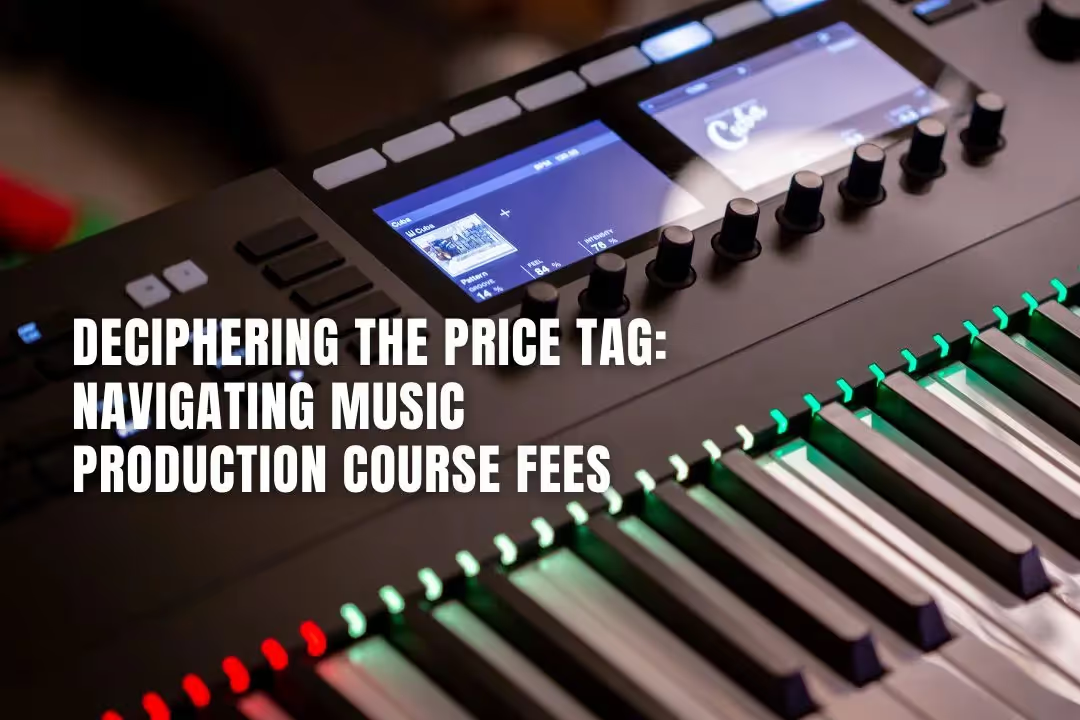Embarking on a journey into the world of music production is an exciting endeavour for many aspiring musicians, producers, and sound engineers. However, one of the crucial considerations when choosing a music production course in India understands the associated fees. From comprehensive diploma programs to specialised short courses, the cost of music production education can vary widely depending on factors such as the duration of the course, the reputation of the institution, and the quality of facilities and instruction provided. In this article, we delve into the factors influencing music production course fees in India and offer insights to help prospective students make informed decisions.
Factors Influencing Music Production Course Fees
- Course Duration: The duration of a music production course can range from a few weeks to several months or even years for comprehensive diploma programs. Naturally, longer courses tend to have higher fees due to the extended duration of instruction and resources required.
- Institution Reputation: Established institutions with a strong reputation in the field of music education often command higher fees. Institutions known for their experienced faculty, state-of-the-art facilities, and industry connections may justify their higher fees with the quality of education and opportunities they provide.
- Facilities and Equipment: Music production courses that offer access to professional recording studios, soundproof rooms, and a wide range of industry-standard equipment tend to have higher fees. The cost of maintaining and upgrading such facilities is reflected in the course fees.
- Curriculum and Instruction: Courses that offer a comprehensive curriculum covering various aspects of music production, from audio engineering to music theory and business skills, may have higher fees. Similarly, courses taught by experienced industry professionals or renowned educators may also command premium fees.
- Certification and Accreditation: Courses that provide recognised certifications or are affiliated with reputed educational bodies may have higher fees. Accreditation adds credibility to the course and may enhance its value in the eyes of prospective employers or clients.
Understanding Fee Structures
Music production course fees in India typically follow one of the following fee structures:
- Fixed Fee: Some institutions charge a fixed fee for the entire duration of the course, regardless of the number of modules or subjects covered. This fee structure offers clarity to students upfront but may not account for additional costs such as study materials or equipment.
- Modular Fee: In modular fee structures, students pay for each module or subject separately. This allows students to customise their learning experience and pay for only the modules they wish to undertake. However, the total cost may vary depending on the number of modules chosen.
- Additional Costs: Apart from tuition fees, students should also consider additional costs such as study materials, textbooks, software licences, and equipment. These costs can significantly impact the overall expenditure of pursuing a music production course.
Navigating Music Production Course Fees
When considering music production course fees in Mumbai, prospective students should:
- Research: Thoroughly research different institutions, their course offerings, and fee structures to find the best fit for their budget and learning goals.
- Compare: Compare course fees across multiple institutions, taking into account factors such as reputation, facilities, and curriculum.
- Financial Aid: Inquire about scholarships, grants, or financial aid options offered by institutions to help offset course fees.
- Consider ROI: Evaluate the potential return on investment of the course by considering factors such as job placement rates, alumni success stories, and industry recognition.
As students explore the vast landscape of music production courses, understanding the cost structure is crucial. However, affordability doesn't mean compromising on quality. For instance, there are exclusive student offers in India that provide substantial discounts, making professional courses more accessible to aspiring music producers.
Conclusion:
By understanding the factors influencing music production course fees and carefully evaluating their options, prospective students can make informed decisions that align with their budget and career aspirations. With the right education and training, aspiring music producers can embark on a fulfilling journey in the dynamic and creative world of music production.
